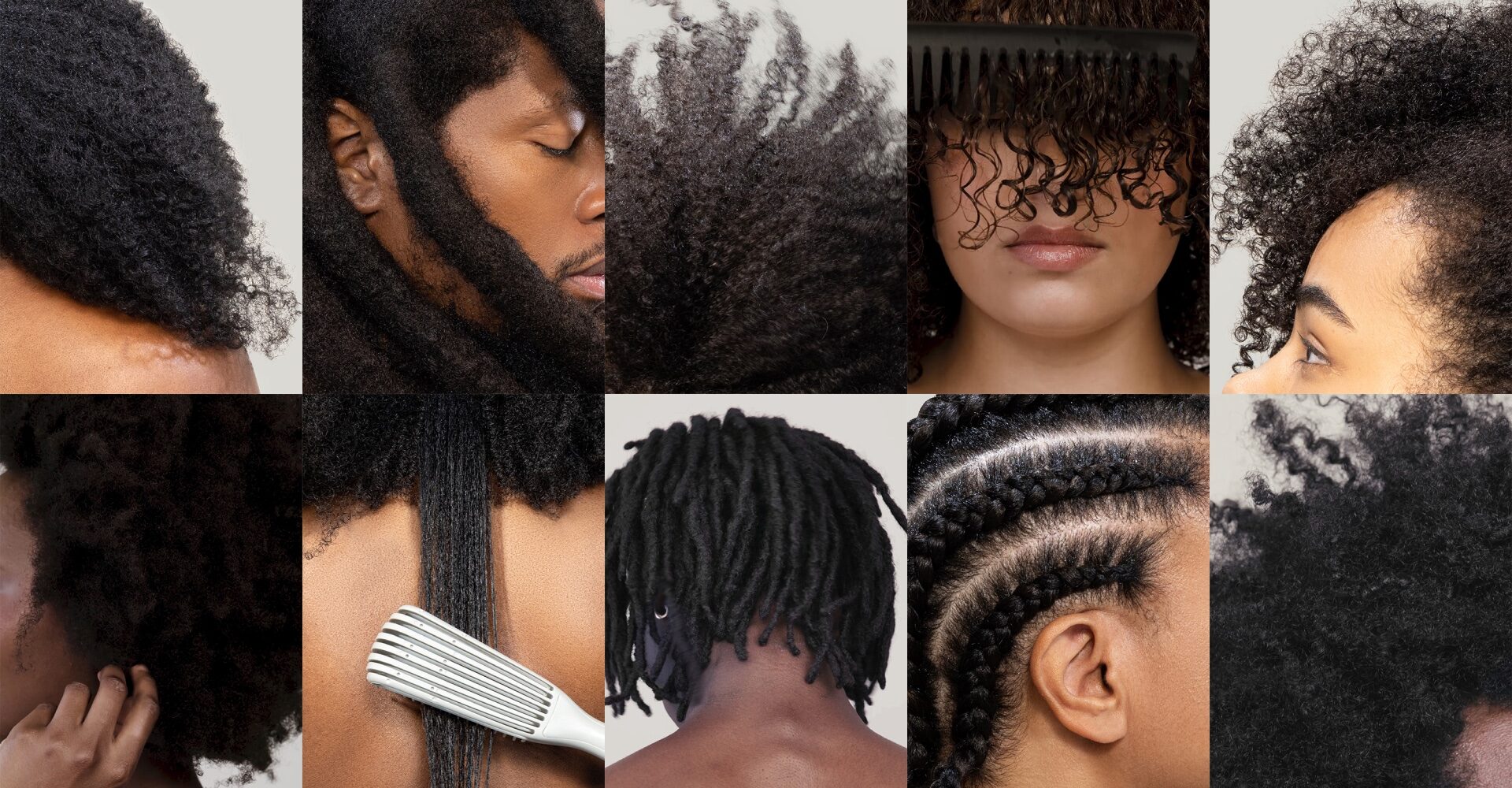
New Personalization Platform OurX Wants To Be The Noom Of Textured Hair
OurX aims to do for textured hair what Noom has done for dieting by providing a tailored program for people to follow.
“We’re training people how to take better care of their hair and every single person’s plan is different,” says founder Ceci Kurzman. “There’s incredible diversity of hair, there’s incredible diversity of lifestyle, there’s incredible diversity of needs, there’s incredible diversity of identities. So, everybody’s program should be highly differentiated, and that’s really where we get into the meat of it because you win or lose this game in the behavior and in the care, not in the bottle.”
While OurX has products in bottles, coaching is at the heart of its business. The platform has assembled a team of experts, including trichologists and hairstylists, to guide customers to better haircare experiences and outcomes. Kurzman outlines that the experts advise them on “what to do in the morning, in the evening, how to style your hair so it looks good, but it isn’t creating tension. That’s really where we’re focused because that’s where the damage is created and that’s also where the greatest steps forward in terms of optimizing hair health are created.”
OurX starts out with an assessment that Kurzman compares to the forms patients fill out at doctors’ offices. The intake forms will include tests and visual cues to help determine, for example, the porosity and density of people’s hair. The idea is to drill down on the actual condition of hair rather than the perception of it. Perception isn’t always right.

“We tend to create assumptions around our hair based on how manageable it is, how much of a struggle it is, what we think we see in other people that are references for it,” says Kurzman. “The byproduct of going through these steps is they’re learning more about their hair and able to apply that knowledge to how to either choose products or how they go about taking care of their hair.”
After the assessment, OurX recommends a haircare regimen. At the outset, it has seven products priced from $24 to $36 from which it designs regimens: Pre-Cleanse Micro Oil, Nutrient Cleanse Complex, Detox Cleanse Complex, Scalp Serum, Scalp Purifying Solution, Intensive Conditioning Compound and Treatment Leave-In. Two boosters intended to be mixed into the mask Intensive Conditioning Compound will be released soon.
Kurzman describes OurX’s haircare as treatment-driven, and its products have hair and scalp health at their core. Styling products are in the docket for next year—and they won’t stray from OurX’s prioritization of hair and scalp health. “If we put out an edge control, the first operation for that product is going to be conditioning,” says Kurzman. “It’s not going to sacrifice anything for style.” She adds, “The results is where our win is. That’s our KPI. Your hair is longer, stronger, thicker. ”
Kurzman, who’s had a distinguished career in music and entertainment, is admittedly not a hair expert. A former VP at Epic Records, she founded the talent management organization Nexus Management Group in 2004. She’s invested in companies such as Spotify, Cover FX and Bulletproof Coffee and been a board member at Revlon, Lanvin Group, United Talent Agency and Warner Music. Kurzman felt compelled to enter the haircare industry because she saw an enormous gap for product innovation in the textured haircare category.
She says, “The more heritage formulations and brands are great and have a lot of phenomenal applications, but this customer is diverse and should have at least as much preference of a product as the general market does.”
“The results is where our win is. That’s our KPI. Your hair is longer, stronger, thicker. “
To fund OurX, Kurzman raised $500,000 from friends and family to test the market and another $2.5 million from Reign Ventures along with female company founders. It was important to her that OurX have a diverse cap table that aligns with its mission and values. Reign Ventures is a technology-centered investment firm founded by two Black women, Erica Duignan Minnihan and Monique Idlett Mosley.
“We intentionally wanted investors who were representative and didn’t want to waste time answering questions about if the consumer was low income or too niche,” says Kurzman. “We never had to waste time defending the market opportunity. Reign Ventures knew firsthand, and we got right down to, ‘What’s the business plan? How can we solve this problem and change a broken system?’”
OurX’s marketing strategy prioritizes building community through its personalization approach and word of mouth. “Unfortunately, many brands have gotten caught being overly reliant on paid digital media, only to suffer when the algorithm changed because they didn’t have an authentic community,” says Kurzman. “We believe the best marketers are the people who have tried OurX and can recommend it authentically. This kind of grassroots strategy takes longer, but builds real trust.”

OurX will publish a data index on textured hair by the end of the year grounded in information gathered through its assessments. Meghan Maupin, CEO of the company and founder of Atolla, a skincare customization brand acquired by Function of Beauty in 2021, is spearheading the project and turning to artificial intelligence to improve OurX’s business as it grows. Demonstrating retail demand for customization concepts, Function of Beauty moved from its website to Target shelves in 2020. The Hair Lab by Strands brought haircare customization to Walmart last year.
“On the AI side, what we can really do with all of this information that we’re collecting, especially collecting it over time, is build robust predictive models that really understand what people are going to need, not only today, but also what they’re going to need in the future,” says Maupin. “I think sharing these insights will be able to create some major change in the industry through looking at textured hair in a much more nuanced way across multiple factors and how people’s needs change as they move, as they travel a lot, as they age, etc.”
Kurzman emphasizes the haircare industry is inequitable. With credible data, education and investment in founders of colors, she’s hopeful it can address inequity. “We need to insist on change and establish this is not a niche consumer, but one who is engaged, knowledgeable and outspending the general market,” she says. “We can breed a new generation of products that rightfully fill the white spaces on store shelves, online and the industry at large.”
Kurzman declares, “The big brands can either get in line or risk falling behind, but the change is coming.”





Leave a Reply
You must be logged in to post a comment.